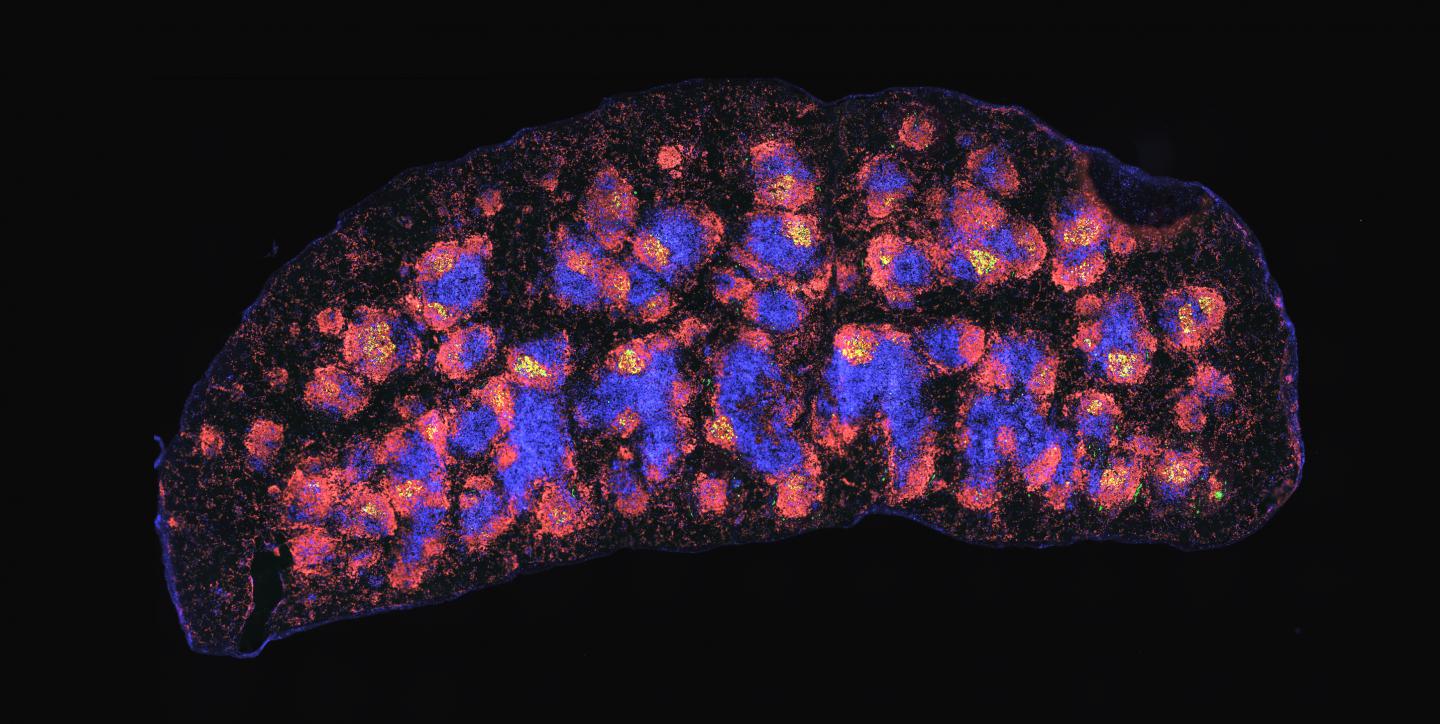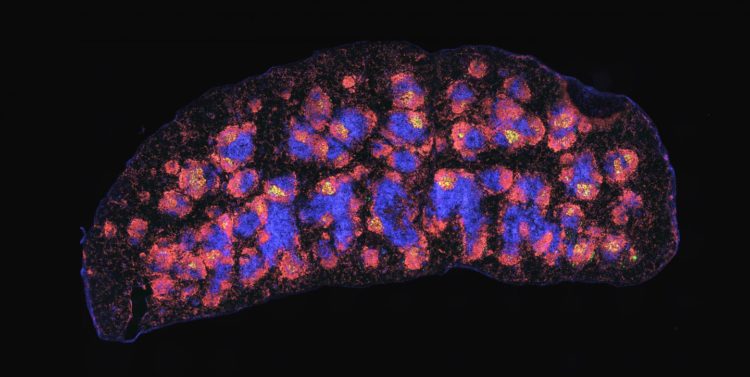
Credit: University of Basel, Department of Biomedicine, Ludivine Litzler
Helper T cells play an important role in the immune response against pathogens. The role of a particular subset of these immune cells was previously unclear. It’s now been shown that T follicular helper cells live much longer than previously thought and contribute to long-term immunity. Researchers at the University of Basel’s Department of Biomedicine reported these findings in Science Immunology.
Most vaccines induce specific antibodies that provide life-long defense against infection by pathogens. There are still many infections, however, for which no vaccines are available, including malaria, HIV and tuberculosis. In the ongoing fight against infectious disease, researchers are therefore exploring new vaccination strategies that focus on T cells, which can also provide protection against pathogens.
Immunological memory
T cell targeted vaccination generates long-lived memory cells that remember the pathogen. Following infection, these memory cells are able to multiply quickly and support pathogen clearance. Researchers at the University of Basel focused their studies on a specialized type of T cell: T follicular helper cells (Tfh). These cells interact with other immune cells, providing essential support for antibody production.
Tfh cells are difficult to study in humans as they don’t reside in blood, but mainly in lymph nodes and the spleen, which cannot be sampled routinely. Earlier studies also indicated that Tfh cells fail to make memory in mice, disappearing shortly after an infection subsides.
Surprisingly long-lived Tfh cells
The research group, headed by Professor Carolyn King, has now demonstrated that the disappearance of Tfh cells is largely caused by their susceptibility to death during isolation from the tissue. By treating mice with a small molecule to prevent this, Tfh cells were found to be surprisingly long-lived, persisting for at least 400 days after infection. Unexpectedly, central memory T cells – which have long been considered to be a good target for vaccination – were absent at this time point.
Further investigation showed that the Tfh cells possess stem cell characteristics and continue to support antibody production even at very late time points when the immune response has supposedly died down.
Potential for improved vaccination strategies
This better understanding of Tfh cells opens up new prospects for creating long-term acquired immunity: “We hope that these findings regarding the long-term value of Tfh cells will contribute to the development of improved vaccination strategies,” says Carolyn King, from the University of Basel’s Department of Biomedicine, of the results.
###
Further information
Prof. Dr. Carolyn King, University of Basel, Department of Biomedicine, tel. +41 61 265 38 74, email: [email protected]
Media Contact
Michelle Isler
[email protected]
Related Journal Article
http://dx.





